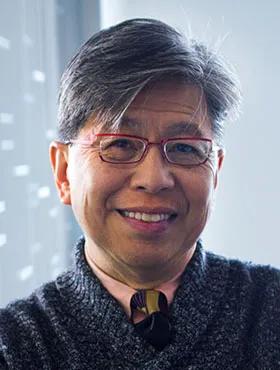Working toward bespoke therapy
The Search Magazine Article | July 1, 2013
Research under way at The Jackson Laboratory for Genomic Medicine in Connecticut will provide insights into how knowledge of the human genome can be leveraged for better medicine. For the discoveries to be fully implemented in clinical settings, however, the medical field as we know it will need to change on a global scale.
In June 2013, Jackson Laboratory President and CEO Edison Liu, M.D., teamed with Patrick Johnston, M.D., Ph.D., of Queen’s University Belfast (U.K.) in The Oncologist to explore both the research and societal challenges facing what they call "bespoke therapy." Bespoke means made-to-order in the clothing industry. In medicine, it represents the increasing ability to treat patients as individuals instead of using therapies based on population averages, the current "one-size-fits-all" medical approach. Liu and Johnston cite cancer therapies that target the specific molecular drivers of malignancies as examples of how molecular biology can translate to better therapy.
Bespoke means made to order in the clothing industry. In medicine, it represents the increasing ability to treat patients as individuals instead of using therapies based on population averages, the current "one-size-fits-all" approach.
The challenges are significant. The complexities of human genomics, including differences between human populations, provide a high hurdle for effective clinical integration. Add to that the societal roadblocks—costs, outdated regulatory oversight and healthcare systems, a lack of effective collaborations in the therapy development and delivery process—and the road to bespoke medicine is a bumpy one.
Does the molecular suit fit? Not yet. But Liu and Johnston show how it can and should fit moving forward.
